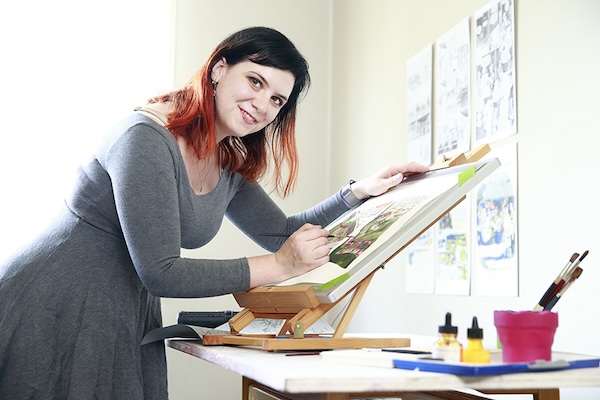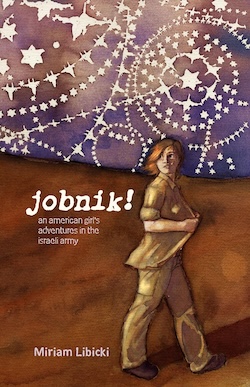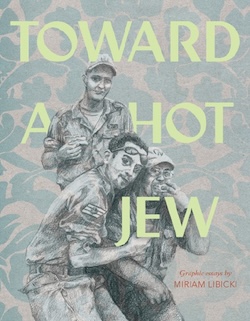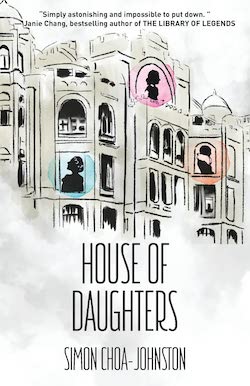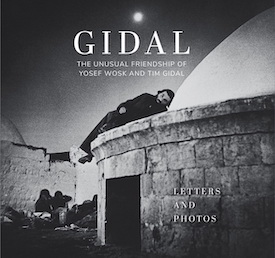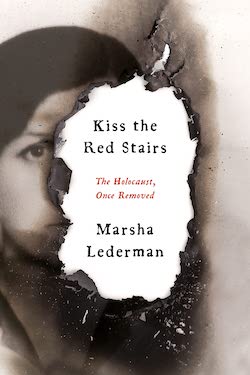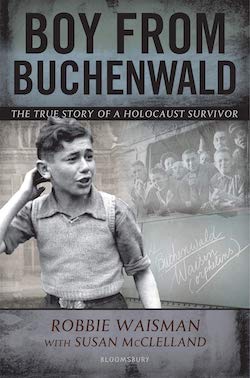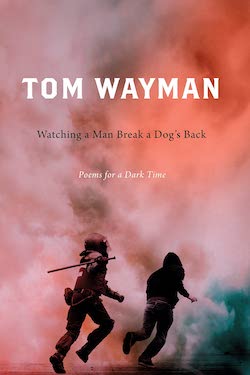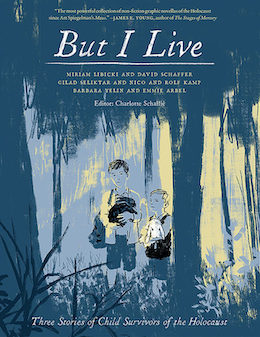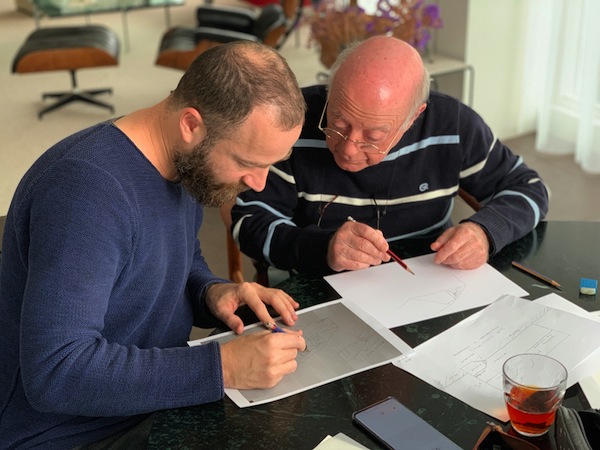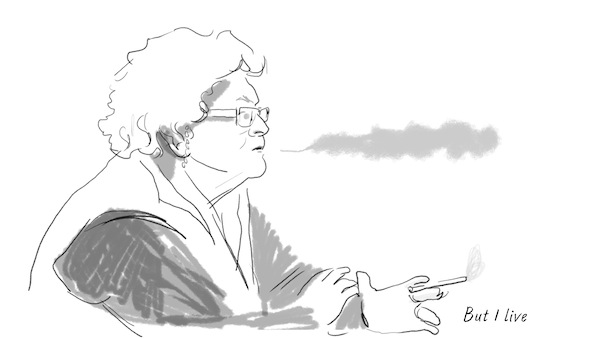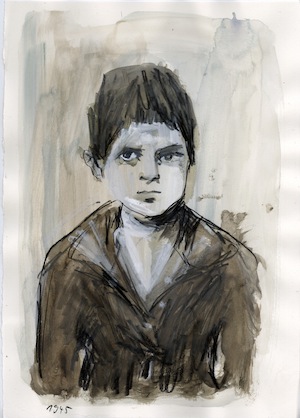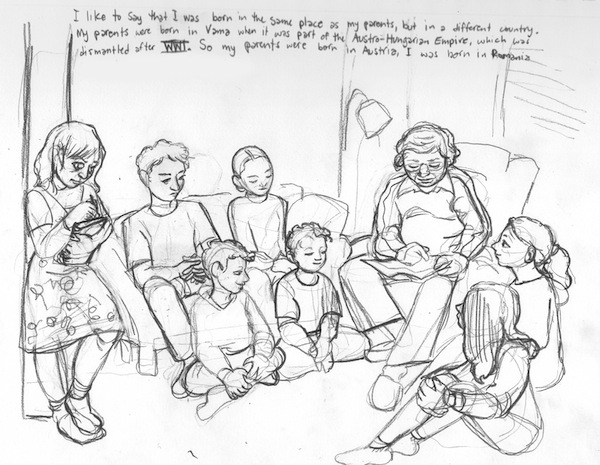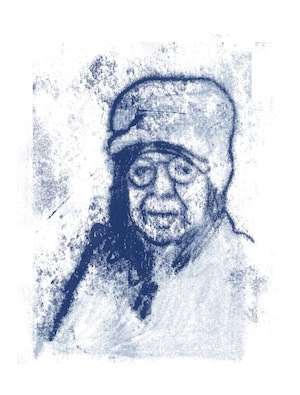Artist and graphic novelist Miriam Libicki is currently Vancouver Public Library’s writer-in-residence. (photo from VPL)
“I think that a lot of my stuff does end up having to do with identity, through both the books I’ve published and the one I’m in the process of starting to draw right now, as well. I’m very interested in identity and I’m interested in identity as something that can change,” Miriam Libicki told the Independent in a phone interview.
Libicki is Vancouver Public Library’s writer-in-residence this fall. Her first event was Sept. 14 and her teaching sessions have been consistently full. At her finale event Dec. 7, attendees will get a preview of her new work. Libicki will also be making appearances at the Cherie Smith JCC Jewish Book Festival, Nov. 26 and 30.
Both of her published books – jobnik! an american girl’s adventures in the israeli army (real gone girl studios, 2008) and Toward a Hot Jew (Fantagraphics Books, 2016) – have received acclaim. The former, which was based on the diary she kept during her service in the Israel Defence Forces, was a finalist for the Gene Day Award for Canadian self-publishing. The latter, a collection of graphic essays, won the 2017 Vine Award for Canadian Jewish Literature in the non-fiction category.
She attributes her curiosity about identity to her upbringing. “Part of it is the idea that I grew up in a very strong and defined community, which was Modern Orthodox Judaism, in the suburbs of the U.S., and yet, I always kind of felt that we were not the platonic ideal of Modern Orthodox American Judaism,” she said. “I guess, partially, because my mother was a convert, which, in some thought, is still kind of taboo, although, in the U.S., it’s very common … and that she was not ashamed or disparaging of where she came from at all, we were still very close with everyone in her family…. She was never somebody who preached that Modern Orthodoxy was the only way to live a moral life.”
This led to some tension, said Libicki, who went to an Orthodox day school. “Also, in my teens, being very attuned to hypocrisy – as many teens are – when people are doing things so much differently than what they preach,” it was challenging. “And then, going to Israel and finding that the social categories were completely different again, that Orthodox was a certain other thing,” raised other questions, such as, “Is religion a belief or is it a social category?”
Libicki spent four years in Israel “trying to be an Israeli.” But, she said, “I was constantly judging, with my over-analytical and insecure mind, whether I was succeeding at being an Israeli or whether I was doing something wrong. And then, I ended up leaving Israel and felt very ambivalent about that…. I think that that has driven a lot of my comics.”
Now living in Coquitlam and a mother of two, Libicki said, “I’m sending my kids to school and that involves a whole other declaration of identity.”
She and her partner, Mike, have a daughter, who just started kindergarten at Vancouver Talmud Torah, and a son, who is 2. “I’ve always … wanted to send my kids to Jewish school – I’m not ambivalent about it,” she said.
Libicki’s current project – the one people will get a peek at on Dec. 7 – focuses on the exodus of Jews from the Soviet Union as it was collapsing in the late 1980s and early 1990s. She has finished the script, she said, which is about “232 pages at this point. And now I’m starting to break it down into thumbnail drawings and starting to draw the first few pages of it.”
Of those Jews who emigrated, she said, about half went to Israel and just under half came to the United States, with the rest going to Canada, Australia and elsewhere. “My town – Columbus, Ohio – which was not a huge Jewish community, although we had five synagogues and a private day school, got a big influx of families … so my little Jewish day school, which was very small, was about a third to two-fifths Russian-speaking by the time that I was in high school. When I was in kindergarten, there were no Russians and then, by the time I was in middle school, there were lots. Growing up, my community was not very diverse and it was interesting to see this whole other community fall into the middle of my community.”
Libicki conducted the initial research for this project for her master’s in creative writing, which she recently completed at the University of British Columbia. For her thesis, she said, “I went back to Columbus and I interviewed a lot of people that I went to high school with, that I’d lost touch with, most of them immigrants, kids who came in the ’90s.
“My parents had moved to Ashkelon … in a community in Israel that I thought was somewhat analogous [to Columbus] in that it’s not a big or culturally important town, but it also absorbed a lot of immigrants in a short time. I tried to find a sociologically equivalent sample of Russian immigrants in Israel, who had come at the same time and had all gone to the same high school together in Ashkelon, and I interviewed them.
“Those interviews, and other people’s flashbacks, make up a big part of the book. And then, in with that, I also have the part where I’m analyzing it and deconstructing it through different lenses, and I also have my current-day life of trying to figure out what I am and what my family is, and children are.”
While jobnik! is mainly autobiographical, Toward a Hot Jew – a collection of essays written over the space of about 10 years, starting in 2005 – is a mix of autobiography, cultural commentary and analysis. In both books, Libicki doesn’t shy away from difficult topics, and is quite candid about her feelings, sexuality and other sensitive issues.
“A lot of my favourite writers do that and a lot of my favourite cartoonists, so that’s why I felt from the beginning that I should do this. I like reading memoir, and you can tell when people are trying to let themselves off easily or inflate something or avoid talking about something,” she said. “Obviously, nobody talks about everything, but I think you can tell in some memoirs when there’s a certain topic that really is germane and it’s being avoided or it’s being glossed over versus when somebody tries to confront something with honesty and openness. Since I liked reading that stuff, that’s what I wanted to write.
“I don’t think I’ve had too many regrets about doing that. One thing is that it does help to write about people who are far in the past, although this current book, it will have scenes from my current-day life, so I’m going to have to – I’ve been avoiding, actually, showing pages to my partner, but I’m going to have to do that before submitting it to publishers.”
When Libicki was discharged from the IDF, she applied to a few art schools and universities, in Israel and the United States, as well as a non-art-related university in Seattle, which she chose because she had friends in the city. She and her now-husband, who was based in Vancouver, had mutual friends. After about a year of dating, seeing each other on weekends, he suggested she apply to art school in Vancouver.
Libicki enrolled at Emily Carr in 2003 and now teaches at her alma mater, though her main job at the moment is being VPL’s writer-in-residence. “It’s a temporary thing but it’s a full-time job,” she said.
Writers-in-residence spend about 60% of their time on their own writing, she explained, and about 40% interacting with the public, in workshops, lectures and advising people on their writing projects. She has a studio at VPL, to which she commutes from her home in Coquitlam.
As to what led her to the graphic novel form, she said, “It’s something that just kind of happened. It happened while I was in undergrad. I always read comics. I was a big fan of comics, and I was a fan of more alternative and literary comics that started to come out, essentially, in the ’90s and beyond. But I never thought I’d make comics because whenever I had an idea, I didn’t follow through, and the idea of drawing the same character over and over and over was not something I thought I could do. But, I really wanted to be an artist. I drew a lot of portraits…. I thought I might be a children’s book illustrator. So, when I went to art school, I was just thinking of doing a drawing major but then I did one comics art class.”
In that class, she said, she used one of the entries from the diary she kept while in the Israeli army – “I’d had a particularly eventful and bad week, and adapted that into a five-page comic.”
The response to that work – which grew into jobnik! – was positive. “People were curious, they said they wanted to see more of my army stories, and it seemed like a better way to talk about my experience,” she said.
During undergrad, she started doing more comics, and the title essay in Toward a Hot Jew – about “the Israeli soldier as fetish object” – was created as her senior project in art school. Not only did she want to write a research essay that people would actually read, she said, “I wanted to do something that I could use pictures … as part of my argument that I was making, add a nuance through the drawings, as well.”
Libicki said she writes “in a pretty systematic way,” starting with brainstorming, “then I’ll do an outline, then I’ll break down my outline into pages and do a map of it that way, then I’ll do a script and then I’ll do thumbnails and then I’ll move on to art.
“I guess that a lot of people who do any creative endeavour have a lot of anxiety around it and fear that, every time you start a new project, perhaps you’ve forgotten how to do this, so I try to break down my practice into as many small steps as possible, so each one will not be as scary,” she said.
And, a shorter project is something she can put together for a comicon. For example, she created The Quotable Mered – based on tweets she had written about cute things her daughter had said – specifically for VanCAF (Vancouver Comic Arts Festival), a free, annual two-day event that has taken place at the Roundhouse since 2012.
The genre – which she described as “daily journal comics or comics about a small theme” – was something she had never done before, and she wanted to try the style, as well as drawing a bit more loosely and “writing to a punchline.”
“It was an experiment, and I did learn things from it,” she said. “I might do one of those again but I just have so many things to do.”

